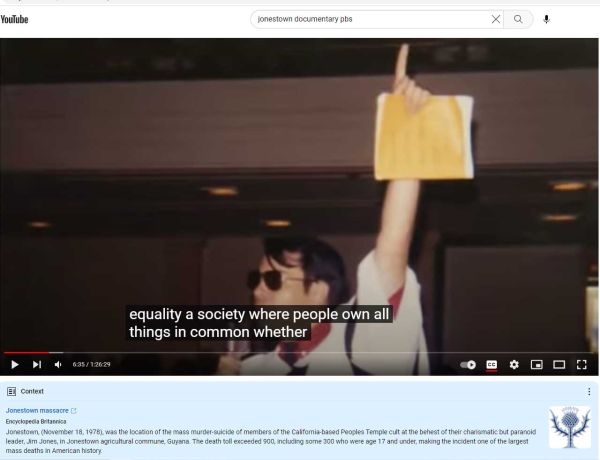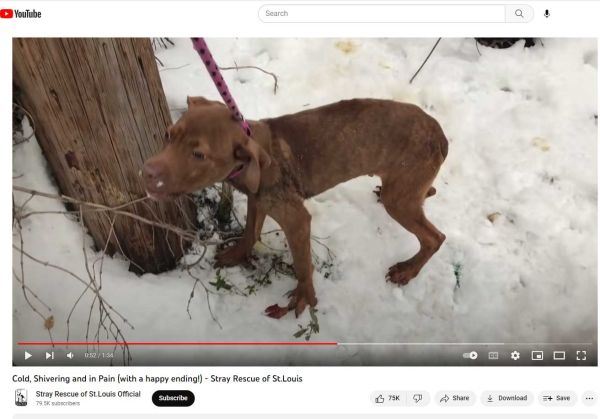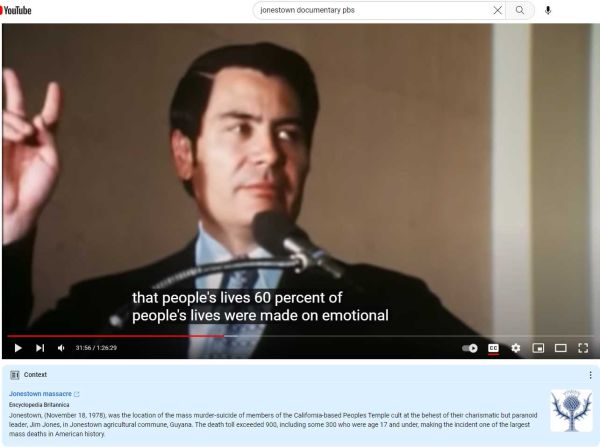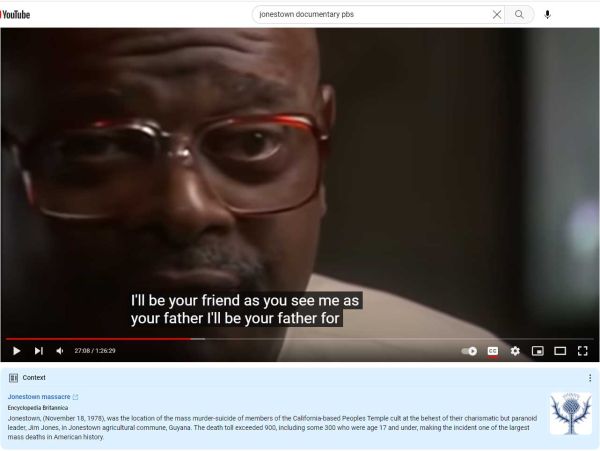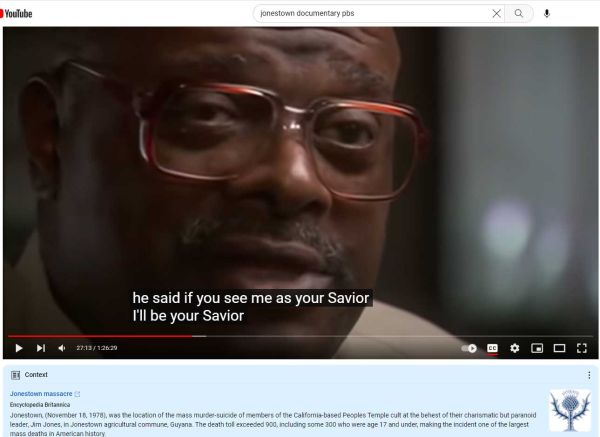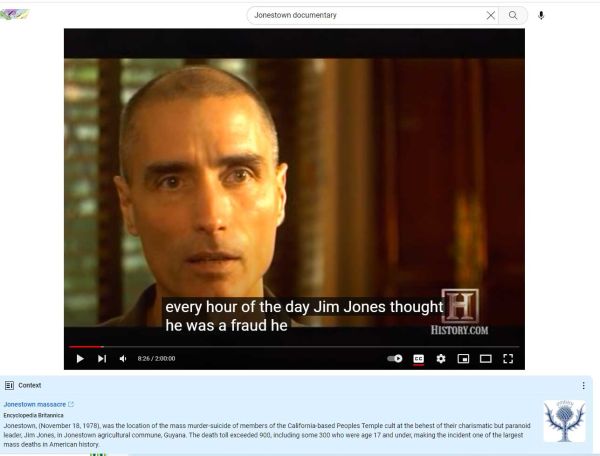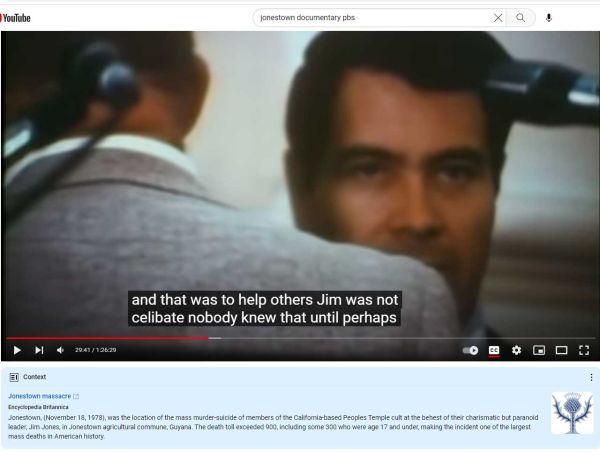Jim Jones: a Leftist Prototype
Jim Jones: a Leftist Prototype
I watched an episode of NBC's Dateline TV show recently, about the Reverend Jim Jones and the mass suicide, or murder, of his followers in South America in November, 1978. Jones had led the congregation of his Peoples Temple from Indianapolis to California, before allegations about his behavior drove him to leave the U.S. and relocate to Guyana in South America. Until the death of Jones and his followers, they all lived in a remote jungle location—very remote.
The Dateline program generated many advertisements—every five minutes. They convince me that the Jonestown story, even 45 years after it broke, still gets the attention of the American public. It happened in 1978, just a few years after I finished college; so I remember it pretty well.
Curiously, nearly every advertisement that played during the Dateline broadcast concerned starving dogs, starving children in Africa, and orphans in Ukraine. How these advertisements play on our emotions and wallets!The advertisements said, in effect, "You can't save the children of Jonestown, but you can save these starving dogs in cages!" The Reverend Jim Jones, from his grave, probably applauds the advertisements, their ability to manipulate people's emotions—something he did very well.
My reader can find two really first-class documentaries about Reverend Jim Jones and the Peoples Temple that appeared on television in 2008, marking the thirtieth anniversary of their mass-suicide. The Public Broadcasting Corporation (PBS) produced one documentary, titled Jonestown: the Life and Death of Peoples Temple. The History Channel produced a docu-drama Jonestown: Paradise Lost, that same year, that features mostly Canadian actors and actresses.
The two documentaries complement each other. The PBS film deals at length with Jim Jones's life, interviews numerous people who knew him, including his adopted son Jim Jones, jr., and includes material on Jones's brief career as a political figure in San Francisco. In addition, the people around him, during his time in Jonestown, describe his declining mental state and addiction to prescription drugs.
The History Channel film, on the other hand, uses re-enactments to flesh out the man Jim Jones and to convey the real-time life of the people of Jonestown. The film also makes great use of the people who lived in Jonestown, including Jim Jones's natural son Stephan Gandhi Jones and other Temple members like Vernon Gosney, and journalist Tim Reiterman, the author of the definitive history of Jonestown, titled Raven.
The PBS documentary mention Jones's efforts to gain support among Democrat political leaders in San Francisco, but not in much depth. They describe Jone's stance against racism and fascism, but without much intentionality or political affiliation. The documentaries do however get a handle on the real character of Jones. Hue Fortson, jr., who lost his wife and children at Jonestown, describes his impression of Jones, as someone close to him.
Jones was a chameleon who wanted more than anything to build a mass-movement. He may have sincerely opposed racism, but he also lacked personal orientation. Jim Jones's natural son Stephan describes his father as a man plagued by thoughts of treachery and personal dishonesty—that he could give away just by opening his mouth. Stephan said, "He knew he was a bad guy; he knew he was a sick guy; he just didn't want you to know it."
On page 173 of Raven, Tim Reiterman describes Jones's ambivalent feelings about sex:
Did not sex squander energy that could better be applied to building socialism? Was it not
elitist to continue marital relations when so many Temple members had no partner at all,
selfish to make babies when so many were starving?
Good socialists ignore the sex drive. . . .
But Jones did not consider himself obligated to follow these instructions himself, and he co-opted numerous members of his church, both male and female, for sex. Like many dictatorial leaders, he expressed his power over others sexually.
Farther down the page, Reiterman continues:
Jones created a sexually eclectic climate of intolerance disguised as tolerance, of guilt,
repression and division. . . . Some members found it a great strain. . . . The labels
"homosexual," . . . "male chauvinist pig," "sexist," . . . were flung about.
As a Facebook member, I am amazed at the parallels between Jim Jones's rhetoric and left-wing bloggers.
On page 174, Reiterman again takes up the subject of adoptions:
Marriage was one thing, but childbirth another (Jones said). . . . There are too many unwanted
and neglected little ones in the world. . . . Bearing children instead of adopting was construed
as greedy.
Jim Jones must have realized that his community could not survive the harsh life of the jungle, and he contacted members of the Soviet embassy in Guyana to find him a place of refuge. The Soviets however were not eager to let in a man like Jones and his thousand followers. A Soviet official from the embassy had to visit Jonestown to handle the negotiations. He sounded supportive, but at an official function, the American Consul ribbed the official, who was clearly irritated over letting in so many crazy Americans at once.
At any rate, Jim Jones sold his followers on the idea of moving to the Soviet Union, and even after the deaths of Jones and all his followers, the positive stance of Jonestown toward the Soviet Union remained. Jim Jones willed all of Jonestown's assets to the Communist Party of the Soviet Union. His wife and other leaders at Jonestown witnessed it--just another case of good money chasing bad!
On page 565, Reiterman describes the last will and testament of Annie Moore, one of Jones's most important assistants:
Next to her body on the blood-splattered floor was a spiral notebook with a red cover. Annie
Moore had written her own suicide note: "I am twenty-four years of age right now, and I don't
expect to live to the end of this book. I thought I should make some attempt to let the world
know what Jim Jones and Peoples Temple is—or was all about.
"It seems that some people . . . would like to destroy the best thing that ever happened to one
thousand two hundred of so of us who have followed Jim. I am at a point, now, so embittered
against the world that I don't know why I am writing this."
. . . And she spoke with love of the man whom she nursed and comforted: "his love for humans
was unsurmountable and it was many whom he put his love and trust in, and they left him and
spit in his face."
That Moore had lost the power of independent thought and her sense of judgment dismays me. Jones had so many followers. He dominated their lives, gave them definition, and they returned the favor, by giving Jones a sense of authenticity and real purpose.

